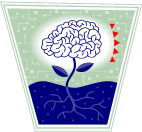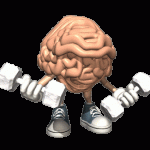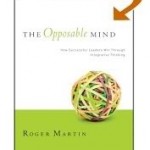Practice Mindfulness to Sharpen Mind and Perhaps Build a Bigger Brain
 Studies have shown that if you spend a lot of time juggling or playing a musical instrument the parts of your brain that supports these activities grows bigger. London taxi cab drivers that spend a decade memorizing elaborate routes experience significant brain changes. These facts support a major premise behind this blog namely, we are far more in charge of the shape, size, longevity and performance of our brain than we realize.
Studies have shown that if you spend a lot of time juggling or playing a musical instrument the parts of your brain that supports these activities grows bigger. London taxi cab drivers that spend a decade memorizing elaborate routes experience significant brain changes. These facts support a major premise behind this blog namely, we are far more in charge of the shape, size, longevity and performance of our brain than we realize.
It would stand to reason that people who meditated extensively should have bigger brains. I have found a few studies that that support this idea but there is not enough data for a firm conclusion. In one study:
“Our data suggest that meditation practice can promote cortical plasticity in adults in areas important for cognitive and emotional processing and well-being,” says Sara Lazar, leader of the study and a psychologist at Harvard Medical School. “
In a second study:
“Using MRI scans the scientists show that there was “significantly larger cerebral measurements in mediators”.
No matter, even if mediation does not grow your brain there have been studies that demonstrate improved clarity of thinking, enhance self-control, reduced stress and self-reported well being. As such it is an important option for improving cognitive performance and will be a frequent topic on the Next Brain Blog.
 Buddhist insight mediation that advocates focusing on sensation rather than our thoughts of sensation seems to produce results. It is similar to the more modern movement of mindful mediation that focuses on “being in the moment”. Finally, there is a third, non-mediative approach to mindfulness that we will explore. It is based on the contemporary work of Ellen Langer and seeks to achieve a heightened state of situational awareness of conscious control over thoughts and actions. Insight mediation, mindful mediation and cognitive mindfulness.
Buddhist insight mediation that advocates focusing on sensation rather than our thoughts of sensation seems to produce results. It is similar to the more modern movement of mindful mediation that focuses on “being in the moment”. Finally, there is a third, non-mediative approach to mindfulness that we will explore. It is based on the contemporary work of Ellen Langer and seeks to achieve a heightened state of situational awareness of conscious control over thoughts and actions. Insight mediation, mindful mediation and cognitive mindfulness.
If you are interested in giving it a try I suggestion action over reading. Try this simple five-step experiment in mindful meditation.
Source: Mindfulness Image
Categories: Ancient Ways, IQ and EQ, Manage Emotions, Mental Focus, Training Tags: Buddhist, meditation, mindfulness
How Fast Can You Read and Does it Matter?
Reading is a primary means of absorbing new information and knowledge. Improving your ability to read – faster, better comprehension and in novel ways – enhances learning capacity and creativity and so it will be a frequent topic on the Next Brain Blog.
 Increasing your reading speed without losing comprehension means saving time or read more in the same amount of time. If you normally read for an hour a day increasing your reading speed from 250 words per minute (international average) to 6oo means you can read approximately 150,000 words more per week. This is the equivalent of a meaty non-fiction book every week or 52 every year.
Increasing your reading speed without losing comprehension means saving time or read more in the same amount of time. If you normally read for an hour a day increasing your reading speed from 250 words per minute (international average) to 6oo means you can read approximately 150,000 words more per week. This is the equivalent of a meaty non-fiction book every week or 52 every year.
How fast do you read? Take this quick free test from RocketReader and find out.
There are proven techniques for increasing reading speed. For example, guiding, skimming and grouping are all proven to work. Other less proven techniques include minimizing subvocalization (talking aloud to yourself while reading) and widening your visual span (number/lengths of words you can taken in at a glance). You can learn to speed read from programs, books, workshops or software. We will discuss all these techniques and options on the Next Brain Blog. Let’s start with software as it affords easy experimentation as well as a good way to be systematic.
There are many software packages on the market that promise to improve your reading skills. Check out TopTenReviews of Speed Reading Software to get a quick overview of what is available. Prices range from $12 to $80 and the more fully features packages are likely worth the extra cost.
I plan on taking the Reader’s Edge (top-rated speed reading software) 30-day challenge and will blog on the results. In the meantime, if you have used speed reading software please post a comment and share your experiences and results.
Categories: Memory and Learning, Software, Training Tags: speed reading
Resistance Training Once per Week Improves Mental Functioning by 10+%
In the Next Brain Blog we track down and report on a full-range of ways to improve the function and longevity of your brain and mind. There are many studies that prove physical exercise is good for your brain fitness and mental health.
But what type should you do, what specifically does it improve and how long do the effects last? A new piece of research reported in the Archives of Internal Medicine on Resistance Training and Executive Function gives some specific answers.
 They found that for older female adults resistance training (dumbbells and weight machines) one or twice a week for a year improved their abilities to plan, make decisions, focus and resolve conflicts by more that 10%. These mental tasks all belong to what is called your executive function.
They found that for older female adults resistance training (dumbbells and weight machines) one or twice a week for a year improved their abilities to plan, make decisions, focus and resolve conflicts by more that 10%. These mental tasks all belong to what is called your executive function.
This is an impressive finding because it gives specifics on the type of exercise and the impact it will have. More to the point:
You can get a big boost in mental performance from a modest weekly investment in resistance training.
You don’t need to go to the gym or use fancy weight machines – low cost home exercise equipment will do the trick.
By the way, you can measure the efficiency of your executive function using the Stroop Test. I will blog on that later in the month.
Source: Image
Categories: Cognitive Decline, Decision Making, Lifestyle, Mental Focus, Older Adult, Training Tags: exercise, Stroop Test
Critical Reasoning Sharpens the Mind But Takes Mega Effort to Develop
 Thinking or reasoning critically is a key cognitive skill. It means we know how to question assumptions, see the logic or lack of logic in an argument, draw sound conclusions from evidence, find root concepts and causes, generate possibilities systematically, avoid decision traps and cognitive biases, see things from multiple points of view and otherwise rigorously deal with ambiguity.
Thinking or reasoning critically is a key cognitive skill. It means we know how to question assumptions, see the logic or lack of logic in an argument, draw sound conclusions from evidence, find root concepts and causes, generate possibilities systematically, avoid decision traps and cognitive biases, see things from multiple points of view and otherwise rigorously deal with ambiguity.
Critical thinking is so important that it has been a major area of focus since the time of the ancient Greek philosophers. But it is not just a philosophical thing. For example, in a recent post on the Harvard Business Review’s blog How Leaders Should Think Critically, the authors argue that it is a fundamental skill for today’s business leaders and students. Of course the same arguments apply to non-business school students and leaders as well as everyone trying to make their way in today’s complex society.
In short, enhancing critical thinking is an important option for anyone interested in building a sharper mind and will be a regular topic on this blog.
But how can you improve it? Self-study using a book or web resource is a good way. I’ll make a couple of recommendations below. You can also scout out a class or seminar at a location near you. For those who like a more guided approach, you can contract the services of a tutor or philosophical counselor.
No matter how you start please be sure to share your experiences with other readers of this blog.
For a good introductory text on critical reasoning see, Thought and Knowledge: An Introduction to Critical Reasoning. It is relatively inexpensive, easy to read and covers basic and advanced topics. It has a more psychological than philosophical orientation and provides nice chapter summaries. You can access it online on Questia here.
For a very comprehensive free treatment, check out Critical Reasoning a User’s Manual (version 3.0). It is a 640-page (3 MB) PDF. It is also available online in the document reader Scribd here.
Both these resources will take an enormous effort to get through! If you are aware of a better general introduction please comment on this post. In the meantime, I will blog on specific techniques that you can use to build critical reasoning skills with much less effort.
Categories: Ancient Ways, Books, Decision Making, Problem Solving, Training Tags: critical reasoning, critical thinking
Do You Have You Membership to a Brain Gym?
 Over the last five years dozens of companies offering software to “train your brain” have sprung up. The software is often a structured time-based test or some form of a game. It can run on your PC , game console or even your smart phone. The idea is to give your brain a work out much like going to a gym. To see a brain working out click on the image to your right.
Over the last five years dozens of companies offering software to “train your brain” have sprung up. The software is often a structured time-based test or some form of a game. It can run on your PC , game console or even your smart phone. The idea is to give your brain a work out much like going to a gym. To see a brain working out click on the image to your right.
But what are they proven to do for your brain? Many claim to improve memory, visual perception, planning and help avoid cognitive decline as we age. Most have studies that show you will improve on the tasks in the software but what is less clear is if that transfers to doing similar cognitive tasks in other setting such as those in daily living or at work.
Brain or cognitive training software is rapidly advancing and will be a regular topic on this blog. There is little doubt that it is an important tool for building YourNextBrain!
![]() To give brain fitness software a try, click on this demo of the Personal Coach from CogniFit (you may need to scroll down the page and click the demo button). To get a better understanding of how CogniFit approach brain training works watch a 3-minute video of why it is effective.
To give brain fitness software a try, click on this demo of the Personal Coach from CogniFit (you may need to scroll down the page and click the demo button). To get a better understanding of how CogniFit approach brain training works watch a 3-minute video of why it is effective.
I am not endorsing the CogniFit product just offering it as an example. If you are interested in this type of technique for building YourNextBrain! comment on this post and I will reply with a list of leading vendors and products.
Looking forward to hearing about your experiences at the brain gym.
———————————————————————————————–
Source for image above of brain exercising can be found here.
Categories: Memory and Learning, Other, Perception, Problem Solving, Software, Training Tags: brain fitness, brain gym, brain training, cognitive fitness
Use Integrative Thinking to Crack Hard Problems
 There are literally dozens of methods you can use to solve problems. We will try to cover all of them in this blog. The latest crop are driven by the idea that we can become better problem solvers if we learn to think like professionals that are really good problem solvers. Makes sense. For example, in design thinking we try to think like a successful designer or in leadership thinking we try and think like a highly effective leader.
There are literally dozens of methods you can use to solve problems. We will try to cover all of them in this blog. The latest crop are driven by the idea that we can become better problem solvers if we learn to think like professionals that are really good problem solvers. Makes sense. For example, in design thinking we try to think like a successful designer or in leadership thinking we try and think like a highly effective leader.
One approach to think-like-a-leader that has worked for me comes from the Rotman School of Management at the University of Toronto. It is called integrative thinking. In essence it is:
“the ability to constructively face the tensions of opposing models, and instead of choosing one at the expense of the other, generate a creative resolution of the tension in the form of a new model that contains elements of the individual models, but is superior to each. “
Easy to say but hard to do. The payoff however can be enormous as this often used quote by F. Scott Fitzgerald suggests:
“The test of a first-rate intelligence is the ability to hold two opposing ideas in mind at the same time and still retain the ability to function”
In the language of this blog integrative thinking is an important option for building Your Next Brain!
 To dig deeper check out the book, The Opposable Mind: How Successful Leaders Win Through Integrative Thinking. You can get a free preview of the book here. Or if you have more money to spend and want some personal training consider the 3-day executive program in Toronto this April. I will blog on my experiences later. Meanwhile please share your ideas and experiences with integrative thinking techniques.
To dig deeper check out the book, The Opposable Mind: How Successful Leaders Win Through Integrative Thinking. You can get a free preview of the book here. Or if you have more money to spend and want some personal training consider the 3-day executive program in Toronto this April. I will blog on my experiences later. Meanwhile please share your ideas and experiences with integrative thinking techniques.
Categories: Books, Decision Making, Executive, Leader, Problem Solving, Training Tags: cognitive dissonance, integrative thinking
